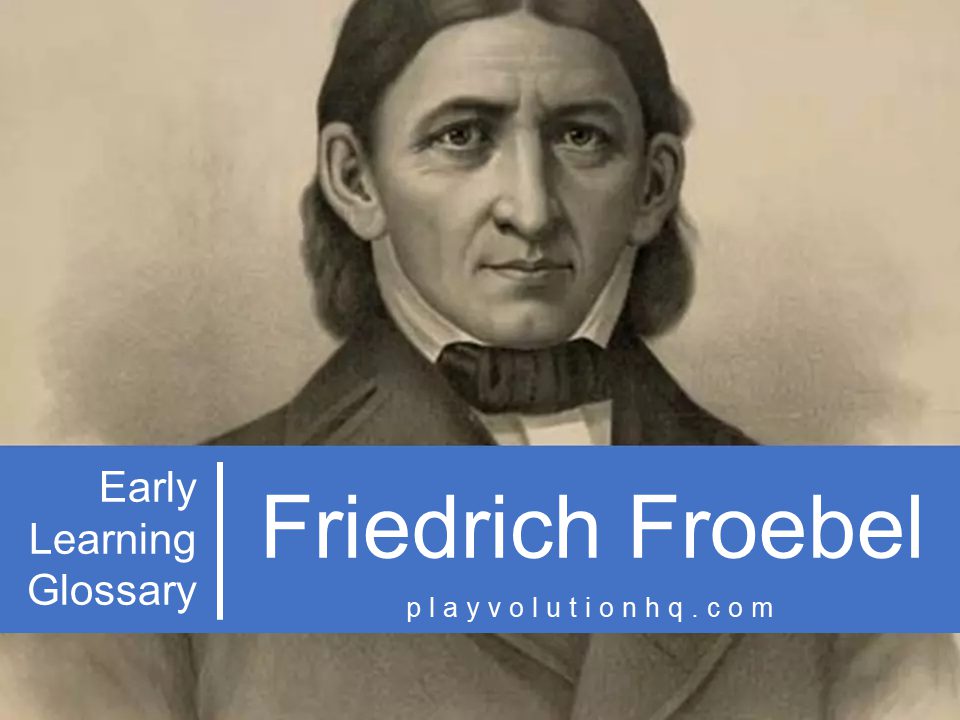
About Friedrich Froebel
Friedrich Froebel (1782–1852) was a pioneering German educator whose innovative ideas about early childhood education left an indelible mark on the field, most notably through establishing the kindergarten system. Born in Thuringia, Germany, Froebel’s early life was shaped by a deep curiosity about nature and a belief in the inherent potential of every individual. His career as an educator took a transformative turn in 1837 when he founded an infant school in Blankenburg, Prussia. Initially named the Child Nurture and Activity Institute, this institution reflected his vision of fostering young children’s development through engaging and nurturing experiences. A few years later, inspired by his observations of children flourishing in an environment that encouraged exploration and growth, Froebel renamed his school “Kindergarten,” a term he coined from the German words Kinder (children) and Garten (garden). This evocative name encapsulated his philosophy that children, like plants in a garden, thrive when provided with the right conditions to grow naturally. Froebel passionately argued that reforming early education was beneficial and essential to achieving broader educational progress and societal improvement.
Beyond founding the kindergarten, Froebel was a multifaceted innovator who sought to equip educators and families with practical tools to support child development. To this end, he established a publishing company dedicated to producing play-based and educational materials. One of his notable works was a collection titled Mother Play and Nursery Songs (Mutter- und Koselieder), published in 1844. This compilation of songs, games, and activities was designed to strengthen the bond between mothers and children while promoting learning through playful interaction. Its widespread appeal led to translations into multiple languages, extending Froebel’s influence across Europe and beyond.
Additionally, Froebel developed a set of educational materials known as “gifts” and “occupations,” which were revolutionary for their simplicity and versatility. The “gifts” consisted of basic geometric forms—such as wooden spheres, cubes, and cylinders—intended to spark creativity through open-ended play. These items encouraged children to intuitively explore shapes, patterns, and spatial relationships. Over time, Froebel’s gifts inspired modern educational tools like Tinkertoys, unit blocks, color cubes, and Cuisenaire Rods, which remain staples in classrooms today. Complementing the gifts were the “occupations,” a collection of loose, manipulable materials including clay, sand, beads, string, and rope. These allowed children to experiment freely, fostering fine motor skills and imaginative expression.
Central to Froebel’s educational philosophy was his emphasis on “self-activity” and the transformative power of play. He believed that children learn best when they are active participants in their education, engaging in self-directed exploration rather than passive recipients of instruction. In Froebel’s kindergarten, teachers were not authoritarian figures tasked with rote drilling but facilitators who nurtured children’s natural curiosity and self-expression. Play, whether solitary or collaborative, was the cornerstone of this approach. Froebel saw it as a fundamental mechanism through which children could make sense of the world, develop social skills, and uncover their unique abilities. Group activities, such as circle games and storytelling, fostered a sense of community, while individual play with gifts and occupations allowed for personal growth and discovery. This radical departure from his era’s rigid, discipline-focused schooling laid the groundwork for progressive education movements and continues to influence modern pedagogies that prioritize experiential learning.
Froebel’s legacy is profound and far-reaching. His kindergarten model spread globally, adapting to various cultural contexts while retaining its core focus on holistic child development. By championing the idea that education should honor each child’s innate creativity and individuality, Froebel challenged conventional wisdom and reshaped how society views early learning. His insights into the importance of play, the role of the educator as a guide, and the need for age-appropriate materials remain as relevant today as they were in the 19th century, cementing his place as a visionary in the history of education.
Additional Resources:
- Video: Froebel Kindergarten Gifts
- Biography of Froebel and more information about his kindergarten curriculum
- Official website of the Froebel Trust
Contribute content to Playvolution HQ
Brought to you by Explorations Early Learning
Thoughts On This Entry?
I’d love to hear your thoughts on improving this entry and suggestions for additional glossary additions in the comments below. You can also contact me with comments or concerns.
Browse Trainings
Author
Josie is an early childhood educator turned children’s librarian from Kansas City, MO. When she’s not promoting play and early literacy, she loves to spend time with her family and travel. During her rare moments of free time, you can find Josie curled up with a cat and a good book. Feel free to reach out to her with early literacy questions or ask for book recommendations.
In-Person And Online Training
Learn how to book an in-person or online training for your organization on these early learning topics.
Support The Site
I participate in the Amazon Services LLC Associates Program, an affiliate advertising program designed to provide a means for me to earn fees
by linking to Amazon.com and affiliate sites.
Thanks To Our Patrons
This post was made possible by patrons like these, who generously fund our work:
Supporters
Lissadell Greene Stephanie Goloway Jennifer Stark
Lagina Kozak Michelle Hankins
Marie Messinger Tamara L. Lakin
Fans
Jen Flemming Lizz Nolasco Cynthia J Bays
Susan Warner Kelly Sigalove Shawn Wolf
Vittoria Jimerson Codee Gilbert Wendy Tedford
Monica Morrell Pam Soloman Melissa Franklin
Teresa Watson Erika Felt Autumn Peele
Melissa Taylor Jahmeela Robinson Stacie Manning
Amber Maurina Terra Calamari Anne Jackson
Lagina Kozak Samantha Yeager-Cheevers
Elizebeth McCoy Sammy Cousens Ellen Cogan



Leave a Reply